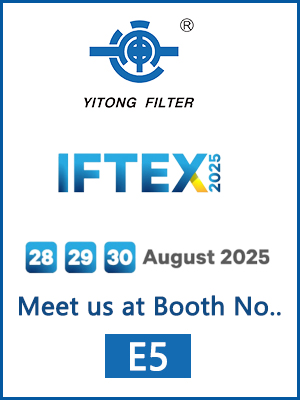 November 22, 2024
November 22, 2024
The importance of filters in return air vents is often overlooked. Yet, these components play a crucial role in maintaining indoor air quality and the overall efficiency of your HVAC system.
A return air vent is a part of your HVAC system. It pulls air from your home, recirculates it through the system, and then redistributes it. The filter in the return air vent is a key player in this process.
The primary function of the filter is to trap dust, allergens, and other particles. This prevents them from circulating back into your home. The result is cleaner, healthier air for you and your family to breathe.
But the benefits of filters in return air vents don't stop at improving air quality. They also contribute to the efficiency of your HVAC system. A clean filter allows air to flow freely, reducing the strain on your system and lowering energy consumption.
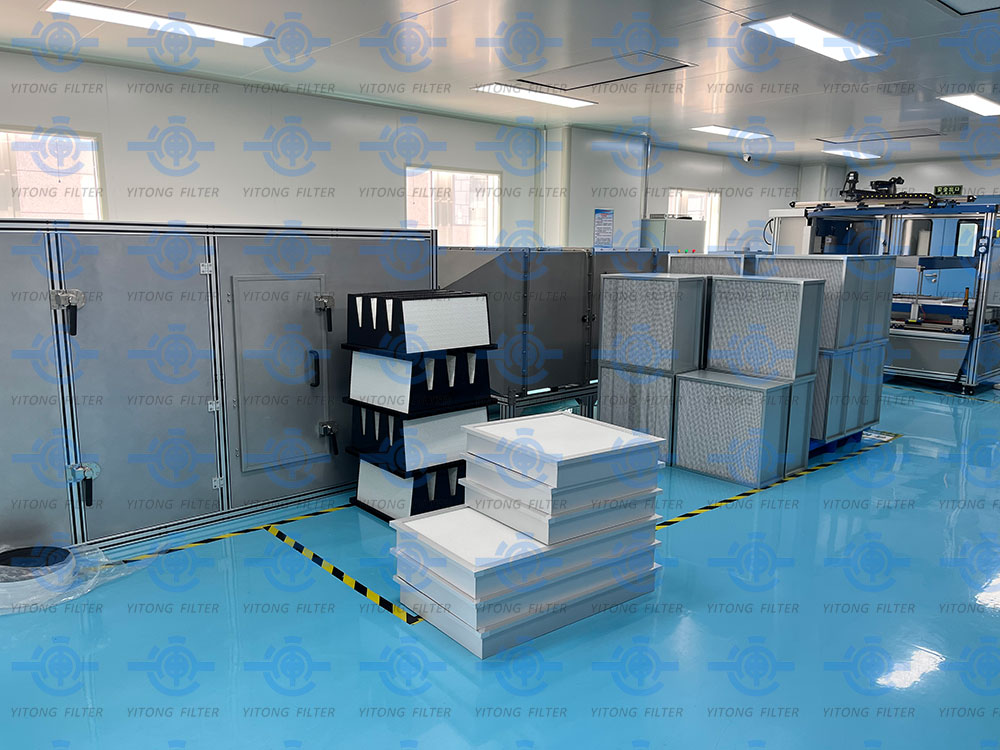
On the flip side, neglecting the filter in your return air vent can have serious consequences. A clogged filter can restrict airflow, forcing your HVAC system to work harder. This can lead to higher energy bills and potentially costly repairs.
Choosing the right filter for your return air vent is also important. There are various types of filters available, each with its own advantages and considerations. The right choice depends on your specific needs and circumstances.
Regular maintenance of your return air vent filter is also crucial. This includes cleaning or replacing the filter as needed. Doing so not only ensures optimal air quality but also extends the lifespan of your HVAC system.
In this comprehensive guide, we will delve deeper into the importance of filters in return air vents. We will cover everything from the benefits and types of filters to maintenance best practices. Whether you're a homeowner, an HVAC professional, or simply interested in improving indoor air quality, this guide is for you.
So, let's get started and explore the integral role of filters in return air vents.
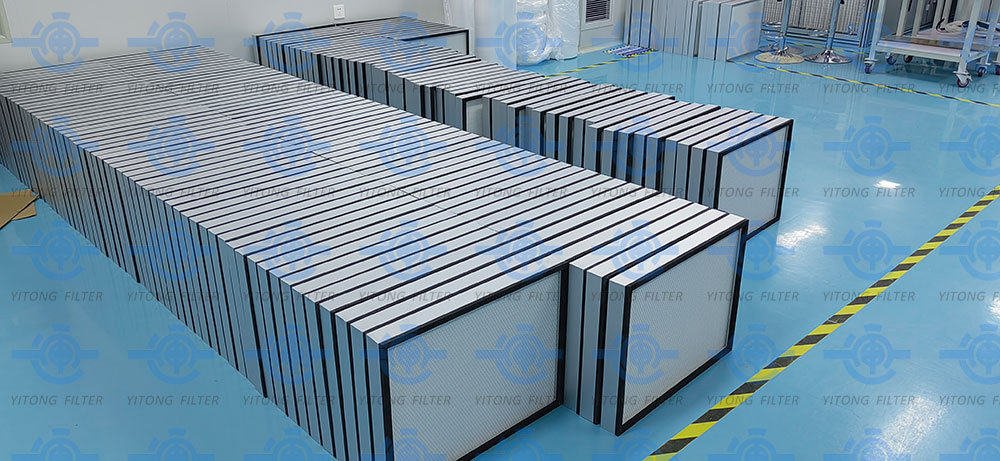
Return air vents are an essential component of HVAC systems. They serve as conduits that draw air from various spaces in a building back into the HVAC system for heating or cooling. This process ensures that air circulates effectively.
In many homes and buildings, you will notice a grill or vent on the wall or ceiling. That is the return air vent. It works continuously to balance pressure and temperature within your living spaces.
The function of return air vents extends beyond simple air recirculation. They also help to manage humidity levels by allowing air to pass through the system's coils. This process aids in the removal of excess moisture.
Properly functioning return air vents offer several benefits:
They ensure consistent indoor temperatures.
They contribute to effective humidity control.
They help to maintain balanced air pressure.
When return air vents work efficiently, the HVAC system does not have to work as hard. This results in energy savings and prolonged equipment lifespan. A well-placed and correctly sized return air vent can notably enhance comfort.
Ignoring or obstructing these vents can cause issues. Restricted airflow increases energy consumption and may result in uneven temperature distribution. Regular inspection and maintenance are necessary to keep them unobstructed and functioning well.
Understanding return air vents and their function helps you appreciate their role in the HVAC system. By ensuring these components work optimally, you can enhance indoor climate control and system efficiency.
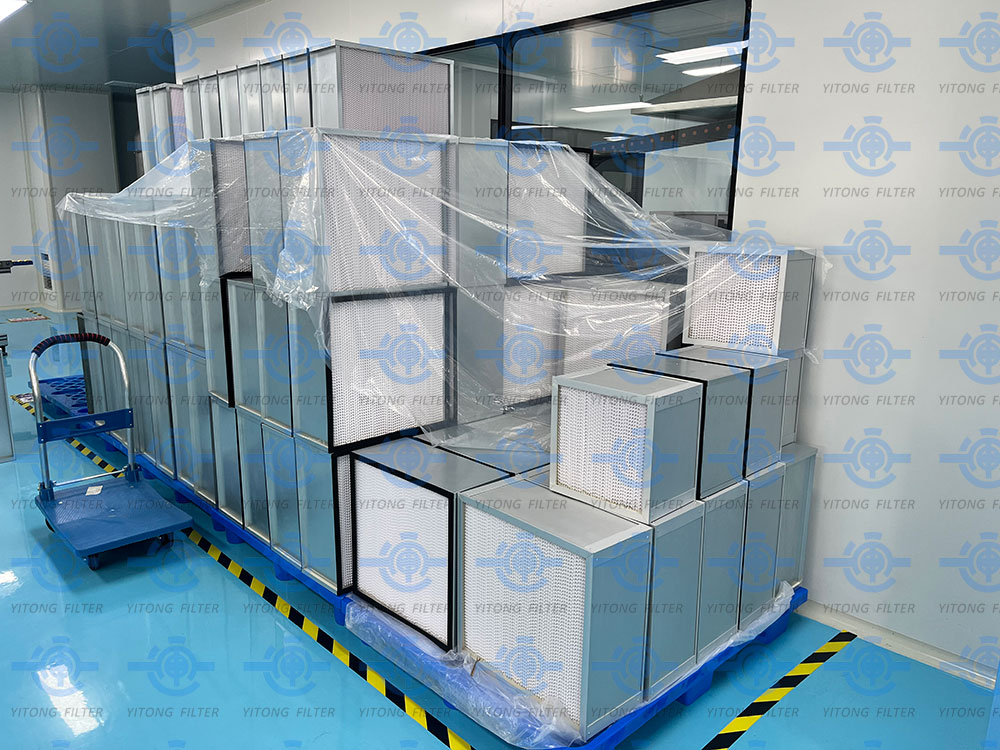
Filters in return air vents serve a critical role in HVAC systems. They capture pollutants such as dust, allergens, and pet dander from the air. This ensures that the circulating air remains clean.
Installing a filter in a return air vent enhances the comfort and health of indoor environments. It prevents the circulation of contaminants that could harm individuals, especially those with allergies or respiratory issues. This clean air improves overall indoor air quality.
Filters contribute more than just cleanliness. They protect HVAC components from dust and debris, reducing wear and tear. This protection leads to longer system life and fewer costly repairs.
Here's how filters in return air vents benefit your home:
Capture dust and allergens, improving air quality.
Extend the lifespan of HVAC equipment.
Reduce maintenance and repair costs.
Filtering the return air stream is a proactive measure in maintaining HVAC efficiency and health. When filters are regularly checked and maintained, they ensure optimal performance. The key is choosing the right type for your specific HVAC system needs.
Indoor air quality significantly affects our health and comfort. Using air filters in return vents is crucial for maintaining high-quality air indoors. Without them, pollutants can freely circulate, causing various health issues.
Air filters trap small particles that escape other cleaning measures. These particles include pollen, pet hair, mold spores, and more. By capturing these, filters improve the air we breathe daily.
Moreover, clean air filters help reduce allergens in the home. This is particularly beneficial for individuals with asthma or allergies. Poor air quality can aggravate symptoms, but efficient filtration minimizes exposure.
Without proper filtration, indoor air can harbor pollutants up to five times higher than outdoors. Such conditions can result in headaches, fatigue, or worse. Regular filter maintenance drastically reduces these risks.
Selecting the right filter type enhances indoor air quality further. HEPA and pleated filters, for example, have higher efficiencies in trapping smaller particles. Understanding the filtration needs of your space is vital for optimal performance.
In sum, filters are not just components of HVAC systems. They are vital protectors of health and well-being, emphasizing their importance in any indoor environment.
HVAC efficiency is largely influenced by the state of its filters. Clean filters ensure that systems work with minimal obstructions, optimizing airflow. This efficiency translates into energy and cost savings.
When filters become clogged with debris, airflow reduces significantly. The HVAC system compensates by working harder, consuming more energy. This strain not only increases utility bills but can shorten the system's lifespan.
Regular filter maintenance can prevent these issues. Replacing or cleaning filters as recommended maintains unobstructed airflow. This allows the system to run at peak efficiency, providing consistent comfort.
Efficient filters can contribute to energy savings of up to 15%. This is a considerable reduction in household energy costs. By keeping filters in good condition, the HVAC system uses less energy and performs better.
Additionally, efficient filters enhance the performance of heating and cooling elements. They provide uniform temperature distribution throughout the home. This consistency translates into reduced wear and tear on components.
In conclusion, efficient HVAC systems depend heavily on clean return air filters. By ensuring these filters are maintained, you can achieve greater system performance and reduced energy consumption. This makes regular filter upkeep a smart investment in home efficiency.
Neglecting filters in return air vents leads to numerous issues. The most immediate problem is compromised indoor air quality. Without proper filtration, dust and allergens can circulate freely.
Unfiltered air containing pollutants can exacerbate health problems. Especially for individuals with asthma or allergies, the air indoors can become a health hazard. This exposure can lead to increased health-related costs.
Another consequence is the reduced efficiency of HVAC systems. Dirty or absent filters force systems to work harder to maintain temperature control. This excessive workload leads to higher energy consumption and increased utility bills.
The added strain on the system can result in frequent repairs and reduced equipment lifespan. Blockages caused by debris can damage delicate components. This increases maintenance costs and can result in costly repairs over time.
Ultimately, neglecting filters can compromise comfort and safety in your home. Regular filter checks and maintenance are crucial for preventing these negative outcomes. By taking proactive steps to ensure filters are clean, you protect both your HVAC investment and indoor air quality.
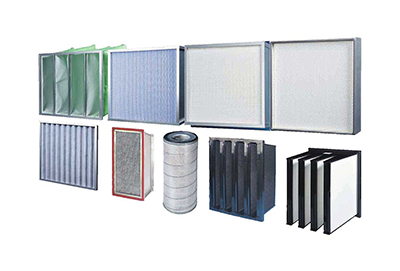
Choosing the right filter is essential for effective air purification. Filters are available in various types, each with unique features and benefits. Homeowners and professionals should understand these options to make informed decisions.
Fiberglass filters are the most common and cost-effective option. They provide basic filtration but are not ideal for those concerned with allergens. These filters need frequent replacement to maintain efficiency.
Pleated filters are a step up in filtration quality. Made with folded paper or fabric, they increase the surface area for capturing particles. This makes them more efficient and longer-lasting than fiberglass options.
HEPA (High-Efficiency Particulate Air) filters are among the most effective. They can capture up to 99.97% of particles, making them suitable for individuals with allergies. However, they may require special HVAC systems to accommodate airflow needs.
Here are the main types of filters:
Fiberglass Filters: Basic filtration, low cost.
Pleated Filters: Better efficiency, moderate cost.
HEPA Filters: High efficiency, may need system upgrades.
Electrostatic filters are another option, using static electricity to attract particles. They can be washable, offering a sustainable choice with long-term savings. However, they require regular cleaning to function properly.
Each filter type serves different air quality needs. Understanding the specific requirements of your environment helps in selecting the right option. Always consider factors like cost, efficiency, and system compatibility.
The MERV (Minimum Efficiency Reporting Value) rating system is crucial in selecting filters. It measures the ability of a filter to capture particles of varying sizes. The ratings range from 1 to 20, indicating the filter's efficiency.
Filters with low MERV ratings, between 1 and 4, offer basic filtration. These are suitable for environments where air quality is not a primary concern. They capture large particles but miss finer allergens and dust.
MERV ratings between 5 and 8 are more common in residential settings. They provide a balance of efficiency and airflow, capturing smaller particles. These filters are a good choice for improving indoor air quality without breaking the bank.
Filters with MERV ratings of 9 to 12 are suitable for homes with pets or allergies. They capture finer particles and improve air quality significantly. However, they might reduce airflow and require more frequent changes.
High-efficiency filters, with MERV ratings from 13 to 16, are used in medical and commercial settings. They offer superior filtration but can restrict airflow in standard HVAC systems. These filters are best for environments where clean air is critical.
Selecting the right MERV rating ensures the filter meets your needs. Consider factors such as air quality requirements, system compatibility, and budget. It's important to find the right balance for optimal performance.
Here's a quick overview:
MERV 1-4: Basic filtration, captures large particles.
MERV 5-8: Moderate filtration, suitable for residential use.
MERV 9-12: High filtration, great for allergies.
MERV 13-16: Advanced filtration, suitable for high-demand environments.
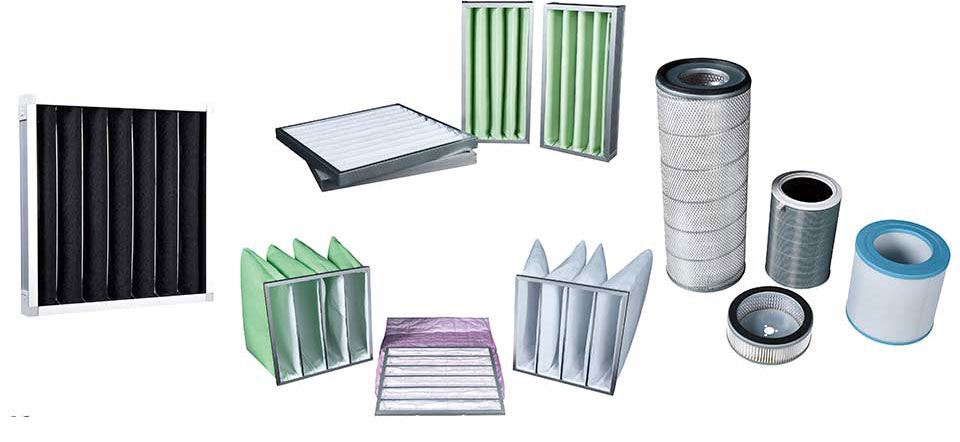
Selecting the appropriate filter is key to maintaining indoor air quality and system efficiency. Begin by assessing the specific needs of your environment. Consider factors like the presence of pets or individuals with allergies.
Next, evaluate your HVAC system's compatibility with different filter types. High-efficiency filters may require advanced HVAC systems to handle restricted airflow. Always check the manufacturer's recommendations for filter compatibility to avoid issues.
Budget also plays an important role in filter selection. While fiberglass filters are affordable, investing in pleated or HEPA filters offers long-term air quality benefits. More effective filters might save money on medical bills and HVAC repairs over time.
Environmental considerations, such as local air quality and seasonal changes, should influence filter choice. Areas with high pollen or dust may need higher MERV ratings for effective filtration. Tailoring your filter to the climate improves overall air quality throughout the year.
Keep in mind that filter quality affects both indoor air health and HVAC performance. Choosing a filter that matches your home's specific needs ensures optimal effectiveness and efficiency. Proper selection balances cost, air quality, and system functionality.
Regular filter maintenance is essential for sustaining good indoor air quality and HVAC efficiency. The required frequency depends on several factors, including filter type, system use, and environmental conditions.
Fiberglass filters typically require replacement every 30 days. Their low cost offsets frequent changes, ensuring effective filtration. Pleated filters can last up to 90 days, offering a longer lifespan with moderate maintenance.
HEPA and higher-efficiency filters may last longer, from three to six months. However, these filters should be monitored regularly for dirt accumulation. Consider checking them every month to ensure they remain effective throughout their lifespan.
Several factors influence how often filters need attention:
Home Occupancy: Homes with more occupants generate more dust and require more frequent filter changes.
Presence of Pets: Pet dander increases the need for regular filter maintenance.
Local Air Quality: In areas with higher pollution or allergens, filters may clog faster and need more frequent replacement.
Apart from these guidelines, individual systems may vary. Always refer to the manufacturer's instructions for specific maintenance schedules. Proper attention to filter upkeep not only enhances air quality but also prolongs the life of your HVAC system.
Return air filters play a significant role in an HVAC system's energy consumption. Clean filters allow air to flow freely, reducing the strain on the system. This efficient airflow translates into lower energy usage, as the HVAC unit doesn't need to work as hard.
When filters are clogged with dust and debris, airflow becomes restricted. The HVAC system then expends more energy to maintain the desired indoor temperature. Over time, this increased energy usage can lead to higher utility bills, affecting your budget.
Using higher-efficiency filters can also impact energy consumption. Some advanced filters may cause more resistance, requiring careful consideration of your system's capabilities. Balancing filter effectiveness and energy efficiency is crucial for optimal system performance.
While the initial investment in high-quality filters might be higher, the energy savings from reduced HVAC strain often make up for the cost. Additionally, keeping a consistent schedule for filter changes ensures ongoing efficiency gains.
In the long run, understanding the relationship between return air filters and energy consumption helps to maintain a cost-effective and environmentally responsible home. Prioritizing filter maintenance means not only better air quality but also prudent energy use and savings.
Maintaining your return air filters is more than just routine—it offers substantial cost benefits. Regular cleaning and replacement of filters ensure your HVAC system operates efficiently, preventing costly repairs and premature wear.
Dirty filters can lead to numerous issues, such as overheating and component failure. These problems often require expensive repairs, which could be avoided with simple filter maintenance. Clean filters extend the lifespan of your HVAC system by reducing stress on its components.
Additionally, efficient filters improve air quality, which can lead to fewer health-related expenses. Breathing in clean air can reduce the severity of allergies and respiratory issues, decreasing medical visits and medication costs.
Taking a proactive approach to filter maintenance also enhances the resale value of your home. Prospective buyers appreciate well-maintained systems that promise lower energy costs and fewer repair needs. A healthy HVAC system is a strong selling point.
Investing time and resources into maintaining filters results in immediate and long-term savings. Ultimately, proper filter care is a simple and effective way to protect both your finances and your indoor air quality. By understanding the cost benefits, you can align HVAC maintenance with budget goals.
Regular maintenance is essential for the optimal performance of return air vent filters. Replacing or cleaning your filter is a straightforward task that can greatly impact indoor air quality.
To start, locate your return air vent. It's typically found near the ceiling, wall, or floor. Ensure your HVAC system is off before starting to prevent dust circulation during the process.
Next, remove the vent cover carefully. Some may require unscrewing, while others slide off easily. Take care not to damage the cover during removal.
Upon accessing the filter, check its condition. If it's disposable and looks dirty, replace it with a new filter. Ensure the new filter matches the size and type of the old one to maintain efficient airflow.
If the filter is reusable, clean it thoroughly using a soft brush or vacuum cleaner. Gently remove dust and debris, then wash it with water if it's designed for wet cleaning. Allow it to dry completely before reinserting.
Once you have installed the new or cleaned filter, replace the vent cover securely. Ensure that the arrows on the filter, indicating airflow direction, are pointing correctly into the ductwork. Regular checks and replacement are vital for maintaining efficient HVAC operation.
Knowing when to change your return air vent filter is crucial for maintaining good air quality. Several signs can indicate the need for a filter change.
First, if you notice increased dust accumulation in your home, it might indicate a clogged filter. Excessive dust settling on surfaces suggests that the filter is not capturing particles effectively.
Another sign is a decline in HVAC performance. If the system struggles to maintain the desired temperature or cycles on and off frequently, it may be working harder due to a clogged filter.
An unusual increase in allergy symptoms can also indicate filter issues. A dirty filter fails to trap allergens and pollutants, allowing them to recirculate in the air, aggravating allergies.
Moreover, if it's been over three months since your last filter replacement or cleaning, it's likely time for a change. Most filters need attention at least four times a year, though some high-efficiency models can last longer.
Lastly, visual inspection can confirm the need for a change. If the filter appears visibly dirty or discolored, it's time for a replacement. Proactive monitoring and timely replacement keep your HVAC system running smoothly and improve overall air quality.
Return air vent filters offer more than just basic filtration. They contribute significantly to the overall comfort and health of indoor environments. Clean filters can help reduce unpleasant odors, like those from cooking or smoking, which can linger and recirculate indoors.
Properly maintained filters also support HVAC longevity. By preventing dust build-up on components, they lower the risk of costly repairs and extend the system's lifespan.
Return air filters aid in maintaining balanced air pressure, important for consistent heating and cooling. This balance ensures efficient system performance and reduces energy wastage.
For optimal filter performance, follow these best practices:
Always choose the right size and MERV rating for your system.
Regularly check for air leaks around the filter area.
Keep track of replacement schedules based on usage and manufacturer recommendations.
An important best practice is ensuring correct airflow direction during installation. The arrows on the filter should align with airflow direction in your HVAC system. This ensures maximum particle capture and prevents bypassing, enhancing filter effectiveness.
Return air vent filters significantly influence both environmental and health outcomes. By capturing particles, they prevent contaminants from circulating indoors, promoting cleaner air and healthier living spaces.
Filters that are regularly changed or cleaned reduce the load on HVAC systems, leading to lower energy consumption and greenhouse gas emissions. Energy efficiency improvements contribute to a smaller environmental footprint overall.
Poor air filtration can aggravate respiratory conditions, especially in vulnerable groups like children and the elderly. Clean filters minimize exposure to allergens and pollutants, providing a healthier environment.
Proper disposal of used filters is another environmental consideration. Many filters are not biodegradable and should be disposed of according to local waste management guidelines.
The production and lifecycle of filters can also impact the environment. Choosing sustainable options or those made from recycled materials can help reduce this impact. In addition to health benefits, maintaining effective filters is a crucial element of an environmentally-responsible building strategy.
Boosting filter performance is essential for optimal HVAC operation. Small tweaks can lead to significant improvements in air quality and system efficiency.
First, keep the surrounding area free from obstruction. Ensure that furniture or objects do not block air vents. This helps maintain efficient air circulation.
Next, check for proper sealing. Gaps between the filter and frame may allow unfiltered air to bypass, reducing effectiveness. A correctly sized filter minimizes this risk.
Consider using higher-efficiency filters if your system permits. HEPA or high-MERV rated filters capture a broader range of particles, ideal for homes with pets or occupants with allergies.
If you notice persistent issues, inspect the HVAC system for underlying problems. Dirty ductwork or malfunctioning components might be stressing the system beyond the filter's capacity.
Common troubleshooting steps include:
Checking for unusual noises or system cycling.
Verifying airflow and pressure levels.
Examining the filter for physical damage.
Lastly, regular inspections help catch issues early, allowing for timely corrective actions. Consistent maintenance ensures that your filters contribute effectively to both comfort and health within your home.
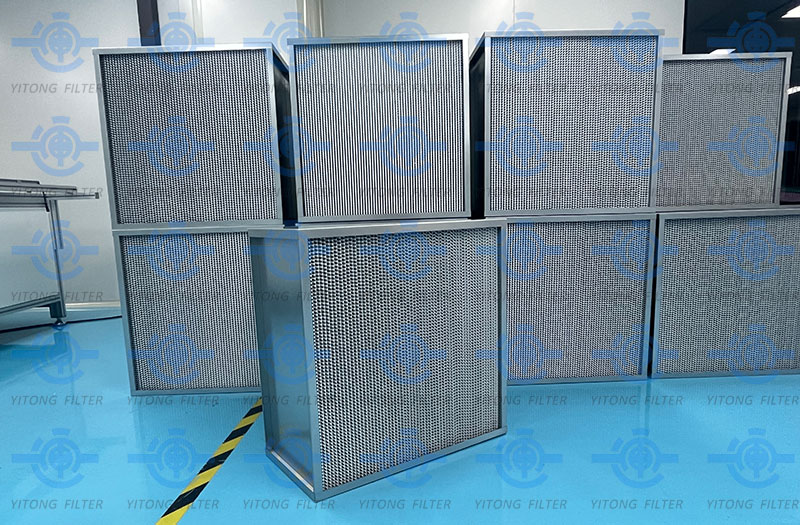
Filters in return air vents are vital for maintaining clean indoor air and efficient HVAC operation. They trap dust, allergens, and other particles, improving air quality and reducing health risks.
Beyond air quality, these filters play a crucial role in protecting HVAC components. By preventing dust accumulation, they extend system lifespan and reduce the need for maintenance. Efficient filters also contribute to balanced air pressure, ensuring optimal performance and energy savings.
A commitment to regular filter maintenance offers significant benefits, both for your health and energy costs. Whether in a residential or commercial setting, understanding the importance of filters ensures you reap the rewards of a clean, efficient HVAC system. Prioritizing filter care is a straightforward step toward enhancing indoor comfort and sustainability.

